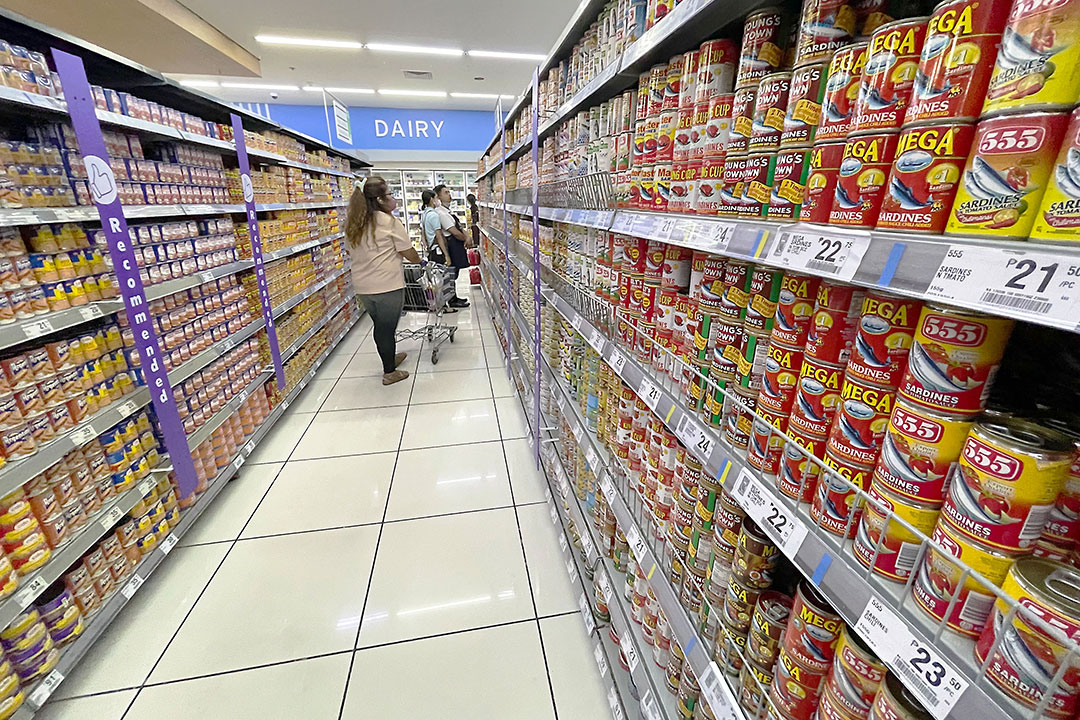DoF warns VAT rate cut could slash P1 trillion in revenue and risk credit rating downgrade

By Kenneth Christiane L. Basilio, Reporter
THE Department of Finance (DoF) expressed “strong reservations” regarding a proposal to lower the value-added tax (VAT) rate, warning it could cost the government more than P1 trillion in foregone revenues through 2030 and undermine its fiscal consolidation efforts.
In a position paper submitted to the House of Representatives dated Oct. 22, the DoF said House Bill (HB) No. 4302, which proposes to cut the VAT rate to 10% from the current 12%, would lead to substantial revenue losses over the next five years.
A copy of the position paper, which was signed by then-Finance Secretary Ralph G. Recto, was obtained by BusinessWorld on Thursday.
“The estimated impact of the proposed VAT rate reduction is at an annual average of P339 billion from 2026 to 2030… This proposal will translate to a higher fiscal deficit and derail the administration’s fiscal consolidation efforts and plan,” the DoF said.
“Introducing this proposal at this time would risk fiscal stability, equity and growth.”
Based on DoF estimates, the revenue impact of the proposed VAT rate reduction would reach a total of P1.694 trillion from 2026 to 2030. This includes P1.11 trillion in foregone revenues for the Bureau of Internal Revenue and P583.6 billion for the Bureau of Customs.
The DoF said reducing the VAT rate to 10% will increase the deficit by one percentage point of gross domestic product annually.
“The proposal will result in credit rating downgrades, which in turn increase our borrowing costs due to higher interest rates,” it said.
The proposed measure will also compromise debt sustainability, the DoF said.
“Lowering the VAT rate and losing a steady stream of government revenues of around P339 billion yearly would significantly slow down the pace of reduction in the debt ratio planned by the government, leaving the country more vulnerable to fiscal shocks,” it said.
The Philippines has imposed VAT on most goods and services since 1988, including essentials such as food and fuel. Raised to 12% from 10% in 2005, it has become a key revenue source, though critics have argued it disproportionately burdens working-class Filipinos.
The DoF said VAT is an important revenue source for the government, accounting for around 26.5% of total tax take and 29.9% of government revenues.
“VAT, as a consumption tax, grows in tandem with the economy, making it one of the most predictable sources of government revenue and, at the same time, one of the most difficult to evade,” the DoF said.
Batangas Rep. Leandro Antonio L. Leviste filed HB No. 4302 in September seeking to lower the VAT rate, arguing the current tax system is “regressive” and should be reduced to make taxation more progressive.
The DoF said the current VAT system is “relatively neutral and slightly progressive” as most of the goods and services purchased and consumed by poorer households are already not subject to VAT.
“The proposed reduction of VAT will benefit higher-income households who have a larger share in formal consumption,” it said, explaining that lower‑income families tend to have only “small shares” of spending subject to the tax. “The richer households will substantially benefit more than the poorer households.”
While the Philippines has the highest VAT rate in Southeast Asia, the DoF said that a reduction in the rate will not automatically make the VAT system more competitive. It noted the Philippines has the lowest VAT efficiency in the region as it provides a significant number of VAT zero-ratings or exemptions to some sectors.
The DoF said the bill is not an “anti-inflation tool” and won’t automatically lower consumer prices.
It also noted that the bill’s provision giving the President the authority to temporarily return the VAT rate to 12% will disrupt the National Government’s fiscal program.
“The proposal will erode revenue stability and predictability… Making (the VAT) rate dependent on the yearly deficit projection of the Development Budget Coordination Committee would mean uncertainty for revenue and cash programming, budget planning and investors’ decisions,” it said.
“The proposed VAT rate increase based on the deficit target breach would also mean business and consumers facing unpredictable tax burdens, higher compliance costs and deterring long-term investments,” it added.



